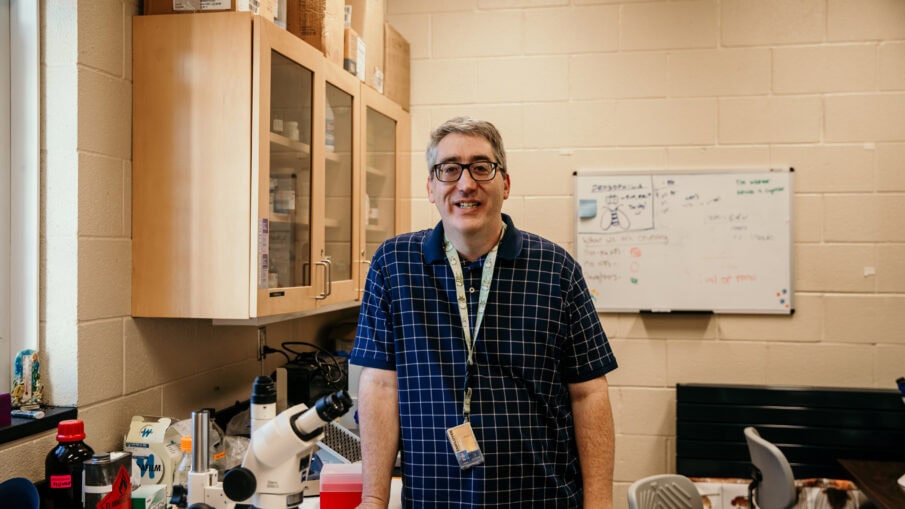Dr. Connor Sipe, a biology professor at Shepherd University, worked with West Virginia University, Marshall University, and West Virginia State to secure a $20 million state grant from the National Science Foundation (NSF). The grant, to be distributed among the four universities over the next five years, aims to strengthen West Virginia’s technology workforce in neuroscience.
Two-thirds of the grant is dedicated to scientific research focused on neurobiology, while one-third supports education and workforce development initiatives.
Sipe’s research under the grant centers on understanding how the nervous system changes over time or in response to environmental factors. He and five undergraduate biology students are studying fruit fly development to observe how stem cell populations respond to environmental influences and how those changes affect brain development.
“My specialty lies in the role of nutrients in stem cell biology,” Sipe said. “By studying the fruit fly brain, we hope to better understand the human brain and how maternal malnutrition can interrupt this process.”

This grant has also provided students with opportunities that would not have been possible otherwise, funding summer research positions and allowing them to work at partner universities, gaining hands-on experience in neuroscience research.
“The Network for Functional Neuroscience and Transcriptomics (NFN) has fostered interaction between neuroscience focused labs at institutions of higher learning across the mountain state,” said Dr. Eric Horstick, a professor at Marshall University. “Getting people from different institutions and departments together promotes new research ideas and generates unique student development opportunities.”
Beyond enhancing research capabilities, the grant allows students to expand their professional networks before graduation.
“Students have been able to establish relations with faculty members that will help them as they go on after graduation,” Sipe said. “They now have skills in the biomedical field, hands on experience, a letter of recommendation, and they get the chance to see if they want to pursue research. This has been a great opportunity for all students.”
Research conducted at Shepherd University through this grant may be applied in national research laboratories near the campus, campus-based faculty laboratories, and other settings where these findings can make an impact.

Leave a Reply